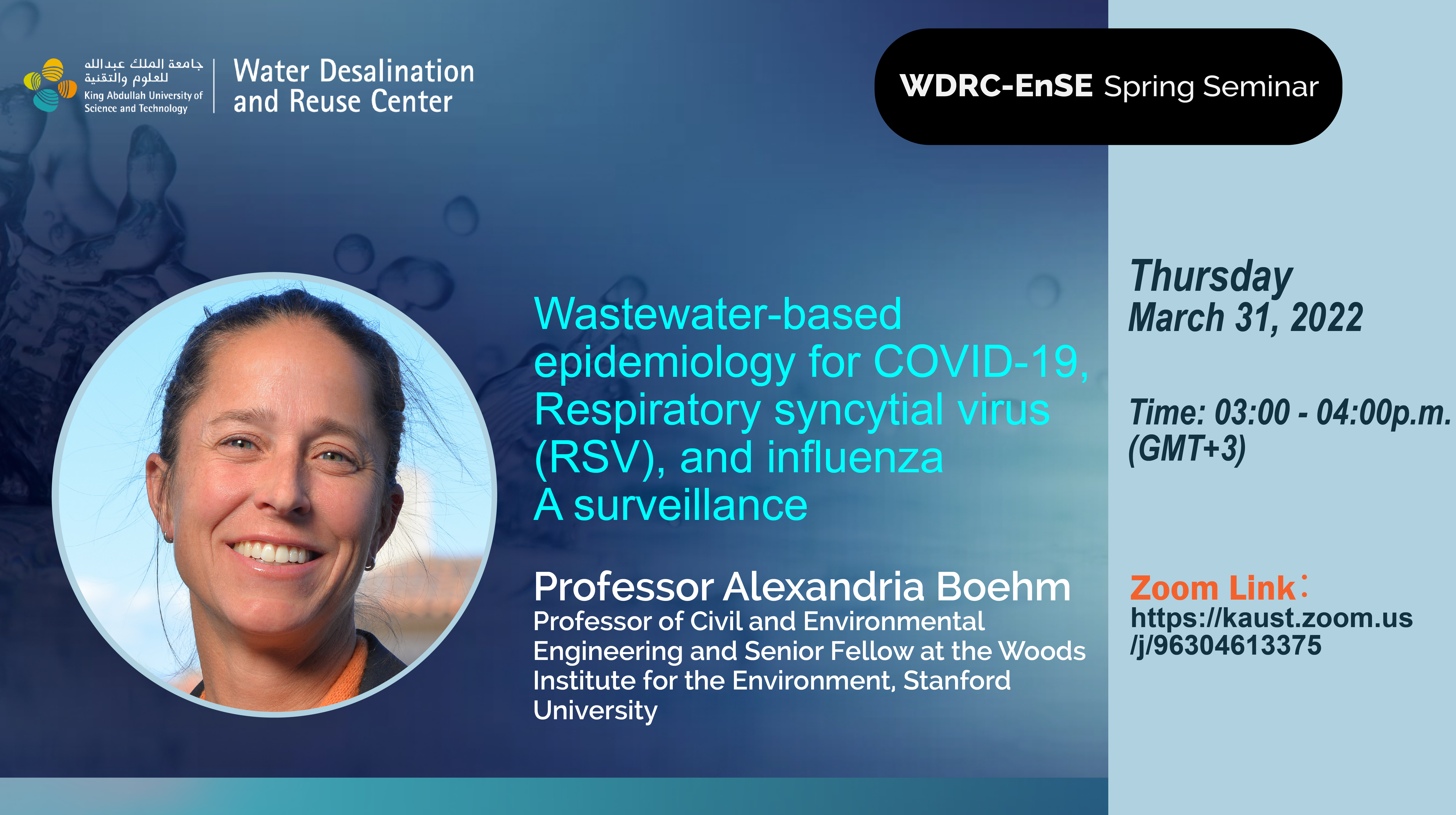



Abstract:
Wastewater-based epidemiology has garnered an immense amount of attention during the COVID-19 pandemic. I will explain the chain of events that led up to wastewater playing an integral role in informing pandemic response, including the recent Omicron surge. I will also present data to suggest that this tool can be used to obtain information on respiratory syncytial virus (RSV) and influenza infections.
Bio:
Prof. Boehm is interested in pathogens in the environment including their sources, fate, and transport in natural and engineered systems. Prof. Boehm is interested in understanding how pathogens are transmitted to humans through contact with water, feces, and contaminated surfaces. Her research is focused on key problems in both developed and developing countries with the overarching goal of designing and testing novel interventions and technologies for reducing the burden of disease.
Prof. Boehm is also interested broadly in coastal water quality where her work addresses the sources, transformation, transport, and ecology of biocolloids - specifically fecal indicator organisms, DNA, pathogens, and phytoplankton - as well as sources and fate of nitrogen. She also works on the use of environmental DNA to detect vertebrates in water bodies. This work informs new management policies and engineering practices that protect human and ecosystem health at the coastal margins.